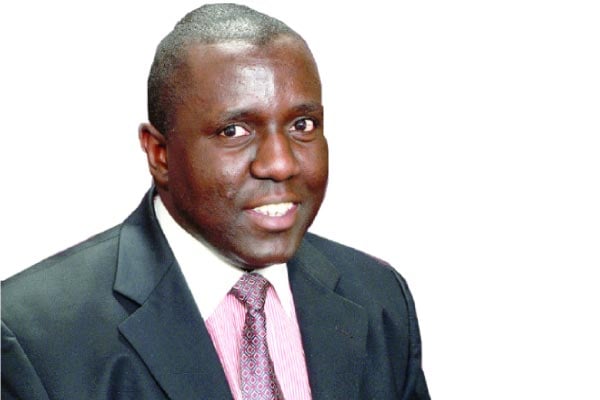Turmoil in FDC very bad sign ahead of 2026

Author: Karoli Ssemogerere. PHOTO/FILE
What you need to know:
- I am asking my subject, with whom we have been playing phone tag for two years, what led to your departure from Forum for Democratic Change (FDC)?
It’s a warm pleasant afternoon, and we are drinking warm water at a café in one of the city’s suburbs.
I am asking my subject, with whom we have been playing phone tag for two years, what led to your departure from Forum for Democratic Change (FDC)?
The answer was delivered in a clear matter-of-fact tone, we disagree fundamentally on the tactics. “The change in governance of this country is a process that must be filled by structures, attitude change, and respect for institutions.”
My subject added, activism, and vigilantism are secondary to the main step.
I prodded further, what is the follow-up? No one in the Opposition has a clear answer, an ominous sign for 2026 when general elections are due.
In 2021, FDC after providing strong leadership in multiple general elections, ceded the frontman position to a new party, the National Unity Platform (NUP). FDC in 2006 garnered 39 percent of the vote, dropped to 22 percent in 2011 but it is widely acknowledged that that result did not reflect the actual vote tally.
Unfortunately, there was no mechanism for redress as FDC, and the other Opposition groups chose another path, walk to work to highlight the deteriorating economic situation at the time. Bank of Uganda’s reserves melted, and the local unit debased from the high 2,000s to the greenback to nearly 4,000 to the greenback.
In the middle of the campaign, questionable transfers were made to key individuals, some of which matters are still in court. Uganda also made a decision to acquire Sukhoi SU-27 fighter aircraft from Russia.
In 2016, FDC entered the race and registered 37 percent of the popular vote after Mr Amama Mbabazi fizzled out in the home stretch. Part of Mr Mbabazi’s approach was to coalesce, what was left of Uganda People’s Congress (UPC) and Democratic Party (DP) and some elements in FDC to support him promising just like Dr Besigye promised in 2001, he would speak “truth to power” and secure their victory. Things didn’t work out that way, but that was the beginning of new changes.
Mr Mbabazi quietly worked himself back into the National Resistance Movement (NRM). Along with him were the leadership of DP and UPC who had stood down for him in 2016.
There was another development in the cloudy world of financing of political parties in the 2016-2021 term. Ahead of the 2021 elections, political parties signed a Code of Conduct, that in short, cause no mayhem, follow the rules, and we shall offer you a shed over your head. After a lot of reluctance, the Treasury released substantial cash to the political parties ahead of the elections based on their numeric strength in Parliament.
I did receive the leader of my party (DP), Mr Norbert Mao, at the family lodge in January 2021, a few days before the election at lunch. Life on the periphery is not easy but at least the cars were fueled up, and we served them ugali and beef. The real action, however, was elsewhere, raring for battle, UPDF in predictable fashion crossed into the election, arresting NUP Candidate Robert Kyagulanyi in Kalangala. In November 2020, scenes of urban protests left scores dead in Kampala.
The country has been missing FDC in the national conversation ever since the departure of my lunchtime subject. Along with him are other former FDC Members of Parliament who were re-elected on the Independent ticket. Inside the party are also another set of members who were elected in “syndicate elections”.
After the January 2021 elections, I sat down for coffee with a former minister, who had lost his second battle to return to Parliament in 2021 to FDC. A jovial man, he said at least, had concluded this cycle in the black.
He “had” only spent Shs650 million, with a small loan of Shs48 million. Two days before the election, his former colleagues in government sent his FDC opponent Shs1.7 billion. The elders called him to say goodbye.
These illicit monies; not the official ones, are the ones at the heart of the intra-party FDC dispute. Ahead of 2021, facing the onslaught, different sets of FDC members chose to cooperate with NRM. Only a few have crossed, more to come, actually.
Mr Ssemogerere is an Attorney-At-Law and an Advocate. [email protected]




